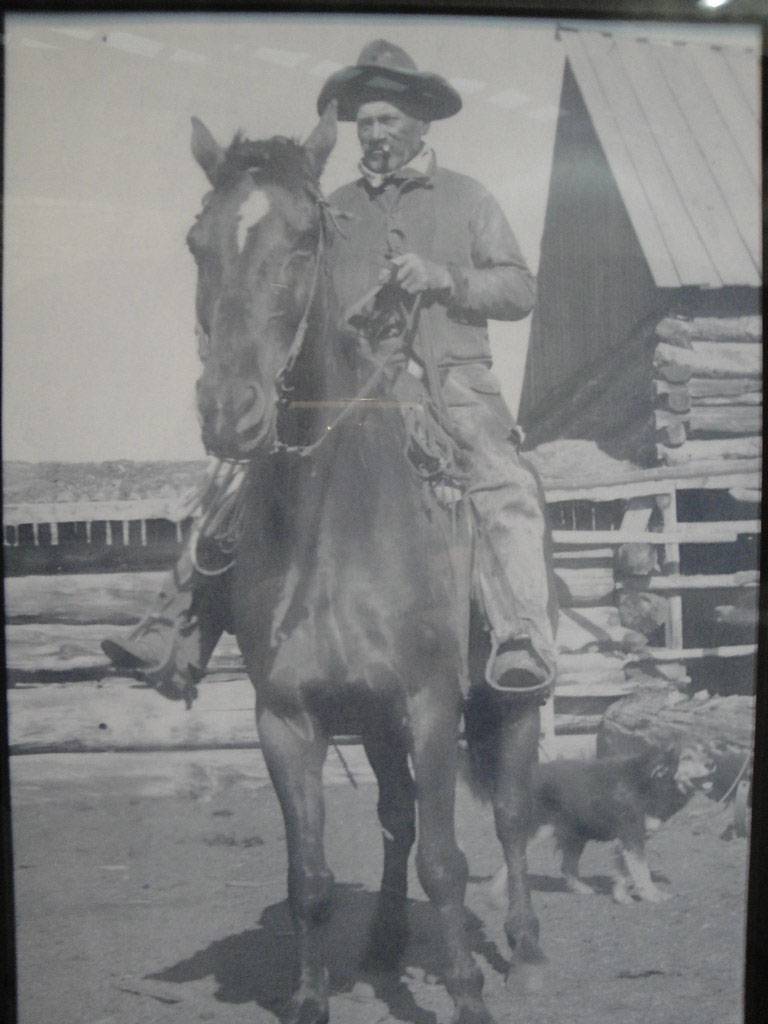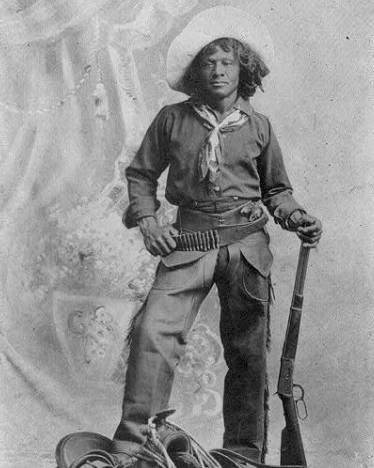The Continental Divide Trail (CDT) unites us. From Gateway Community residents to thru-travelers, and everyone in between, our diverse community is connected by our mission to protect the CDT. We are showcasing stories of the people and places that make up our community with our series, Voices of the CDT. Each month, look out for new stories that highlight these diverse experiences, histories, and faces, against the backdrop of the awe-inspiring Continental Divide.
INTERESTED IN SHARING YOUR CONNECTION TO THESE LANDSCAPES? SEND US YOUR STORY AT [email protected] FOR A CHANCE TO BE FEATURED!
When people think of the west, especially in the 19th century, they tend to think of cowboys. But did you know that a large portion of cowboys during this time were Black? According to this article from Blackpast, the earliest evidence of Black cattle drivers (cowboys) in North America can be found in colonial South Carolina. Stock grazers from what is now known as Senegal in West Africa were brought to the colonial United States specifically because of their skills with cattle (Blackpast). The cattle industry and the enslaved people who worked it began to move west towards Texas over time, resulting in ⅓ of the states population being enslaved workers at one point (Blackpast).
When people think of the west, especially in the 19th century, they tend to think of cowboys. But did you know that a large portion of cowboys during this time were Black? According to this article from Blackpast, the earliest evidence of Black cattle drivers (cowboys) in North America can be found in colonial South Carolina. Stock grazers from what is now known as Senegal in West Africa were brought to the colonial United States specifically because of their skills with cattle (Blackpast). The cattle industry and the enslaved people who worked it began to move west towards Texas over time, resulting in ⅓ of the states population being enslaved workers at one point (Blackpast).

Post-civil war cattle drives sent cattle north to railroad drop offs in Missouri, Kansas, and Colorado and were necessary parts of the US economy in the later 1900s. As the range cattle industry expanded out of Texas after the civil war, Black cowboys expanded with it. The largest populations lived in Arizona Territory, California, Nevada and New Mexico Territory (Blackpast).
One of the highlighly prominent cattle-driving trails in the west was started by Charles Goodnight and Oliver Loving and was known as the Goodnight-Loving Trail. This trail went from central Texas through New Mexico and up to Denver and Cheyenne. Bose Ikard was one of the most famous Black cattle drivers to work this trail and he worked with both Goodnight and Loving.
Bose Ikard was born a slave in 1843 in Mississippi. After the Civil War, Ikard as a free man went to work as a cattle driver in 1866. Bose Ikard developed a trusting friendship with Goodnight and was described by him as “the most skilled and trustworth man I had” according to Blackpast. Bose Ikard was the inspiration for the fictional character Josh Deets in Texas novelist Larry McMurtry’s Lonesome Dove who was later played by Danny Glover in a 1989 TV miniseries.
There are many contemporary stories from the time period following the stories of black cowboys. One popular account is the autobiography of Nat Love, also known as “Deadwood Dick,” which follows his life from his birth into slavery on a plantation, to cowboy and rodeo years spent across the American West and Mexico.

The 2021 Netflix show The Harder They Fall tells Love’s story.
Today, the Black cowboy and cowgirl tradition is kept alive through modern cowboy and rodeo work, such as with groups like the Compton Cowboys in California and the Big Rodeo Project in Mississippi. In 1982, rider Charles Sampson became the first Black bull rider to win a world championship, and was inducted into the Pro Rodeo Hall of Fame in 1996. The Bill Pickett Invitational Rodeo, named for celebrated 19th century Black cowboy Bill Pickett who invented the rodeo challenge of “bulldogging,” continues to celebrate Black riders throughout the west, now in its 35th year. The Black Professional Cowboy and Cowgirl Association is a nonprofit that is working to maintain this heritage and educate young riders.
To learn more about Black cowboys in the American west check out Blackpast’s informative web page. You can also hear more stories on the new Black Cowboys podcast, where host Zaron Burnett shares the cowboy stories that entranced him in his youth.
